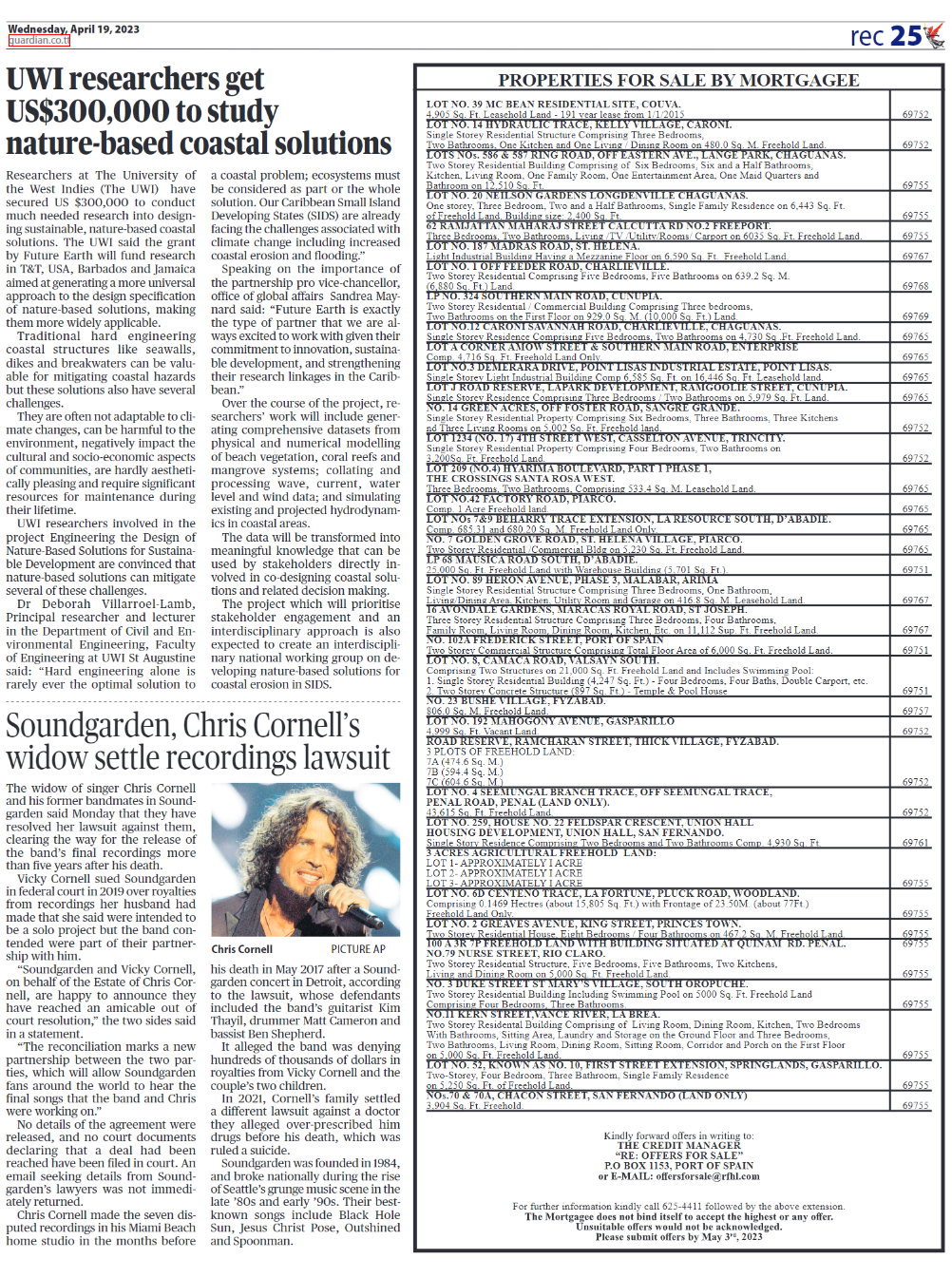UWI researchers get US$300,000 to study nature-based coastal solutions
Researchers at The University of the West Indies (The UWI) have secured US
$300,000 to conduct much needed research into designing sustainable,
nature-based coastal solutions. The UWI said the grant by Future Earth will
fund research in T&T, USA, Barbados and Jamaica aimed at generating a more
universal approach to the design specification of nature-based solutions,
making them more widely applicable.
Traditional hard engineering coastal structures like seawalls, dikes and
breakwaters can be valuable for mitigating coastal hazards but these
solutions also have several challenges.
They are often not adaptable to climate changes, can be harmful to the
environment, negatively impact the cultural and socio-economic aspects of
communities, are hardly aesthetically pleasing and require significant
resources for maintenance during their lifetime.
UWI researchers involved in the project Engineering the Design of NatureBased Solutions for Sustainable Development are convinced that naturebased solutions can mitigate several of these challenges.
Dr Deborah Villarroel-Lamb, Principal researcher and lecturer in the
Department of Civil and Environmental Engineering, Faculty of Engineering
at UWI St Augustine said: “Hard engineering alone is rarely ever the optimal
solution to a coastal problem; ecosystems must be considered as part or the
whole solution. Our Caribbean Small Island Developing States (SIDS) are
already facing the challenges associated with climate change including
increased coastal erosion and flooding.”
Speaking on the importance of the partnership pro vice-chancellor, office of
global affairs Sandrea Maynard said: “Future Earth is exactly the type of
partner that we are always excited to work with given their commitment to
innovation, sustainable development, and strengthening their research
linkages in the Caribbean.”
Over the course of the project, researchers’ work will include generating
comprehensive datasets from physical and numerical modelling of beach
vegetation, coral reefs and mangrove systems; collating and processing
wave, current, water level and wind data; and simulating existing and
projected hydrodynamics in coastal areas.
The data will be transformed into meaningful knowledge that can be used by
stakeholders directly involved in co-designing coastal solutions and related
decision making.
The project which will prioritise stakeholder engagement and an
interdisciplinary approach is also expected to create an interdisciplinary
national working group on developing nature-based solutions for coastal
erosion in SIDS.

